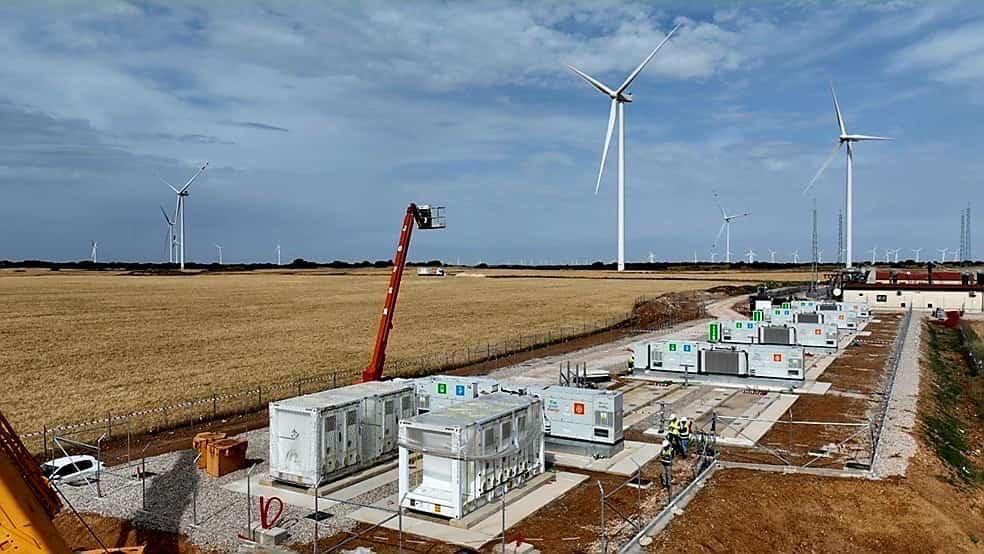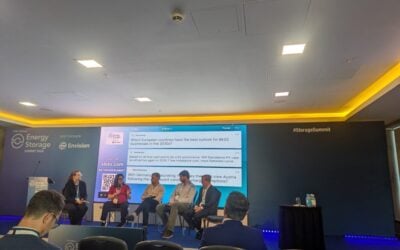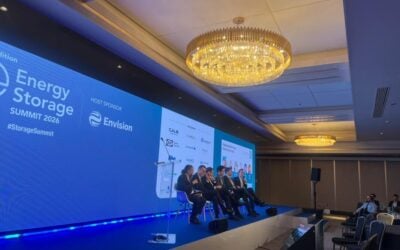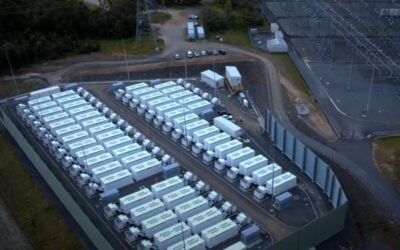
Spanish utility Iberdrola and power conversion specialist firm Ingeteam have partnered to hybridise Spanish operational PV plants with battery energy storage systems (BESS).
In total, four solar PV plants – in the provinces of Burgos, Huelva and the autonomous region of Extremadura – will be co-located with BESS with a total of 100MW/200MWh.
Each project will consist of five medium-voltage stations that manage 25MW/50MWh BESS. The aim of hybridising BESS at the operational solar PV plants is to improve the management of the renewable energy.
The storage systems supplied by Ingeteam include a proprietary hybrid power plant controller (H-PPC) coordinated with the PV plant and combines and limits the power delivered at the point of connection.
Try Premium for just $1
- Full premium access for the first month at only $1
- Converts to an annual rate after 30 days unless cancelled
- Cancel anytime during the trial period
Premium Benefits
- Expert industry analysis and interviews
- Digital access to PV Tech Power journal
- Exclusive event discounts
Or get the full Premium subscription right away
Or continue reading this article for free
Moreover, Ingeteam will supply its medium-voltage power electronics solution, control electronics, and SCADA monitoring system, which will manage the PV plants along with the new BESS plants.
According to Ingeteam, the projects were awarded more than €26 million (US$30 million) in funding from the Spanish Institute for Energy Diversification and Saving (IDAE), as they were recognised as Strategic Projects for Economic Recovery and Transformation (PERTE). These projects could be part of the up to 150MW/300MWh BESS expected to be co-located with solar PV that the utility secured funding for last year from the PERTE tender.
Co-locating BESS with solar PV and renewable energy in general has become a priority in Spain after the country was affected by a blackout in April of this year, as covered by our sister-site PV Tech. Two months after the event, the government had approved – through a royal-decree subject to a vote in the Congress of Deputies – several measures to improve the country’s grid, including a faster administrative process to hybridise energy storage with renewables.
Although the reforms ended up being rejected by the Spanish Congress of Deputies last month, the Spanish government proposed a new royal decree that still aims to facilitate the co-location of BESS with renewables. A broader coverage of the Iberian blackout and its impact on solar PV was featured in the latest edition of our journal PV Tech Power, which is available here for our Premium subscribers.
Spain’s National Energy and Climate Plan (NECP) targets around 22.5GW of energy storage by 2030, and interest in the technology has been growing in recent months. The Spanish Ministry of Environment launched a financial support scheme for energy storage in June of this year, aimed at supporting the development of up to 3.5GW of projects. A total of €700 million (US$812 million) is available in the form of capex grants.
“Spain is one of the most promising markets for the development of energy storage in Europe. The combination of PV with BESS not only allows for the optimal use of clean energy, but also improves the security and stability of supply,” said Katarzyna Suchcicka, VP of the management board at independent power producer R.Power, which has a BESS project portfolio of 344MW in Spain, of which 222MW are in standalone installations.
More recently, the first solar-plus-storage power purchase agreement (PPA) in Spain was signed between Spanish energy firm Zelestra and Portuguese utility EDP. Zelestra will build a 170MWp/400MWh solar-plus-project in the western region of Extremadura.
This is not the first collaboration between Ingeteam and Iberdrola, as both companies previously partnered in the hybridisation of renewable energies with BESS, including the installation of the first BESS with an operational wind farm in Spain, said Ingeteam.
The companies also collaborated in a green hydrogen project in 2022, with Ingeteam supplying BESS for the Puertollano facility.





